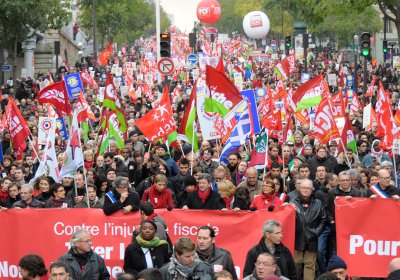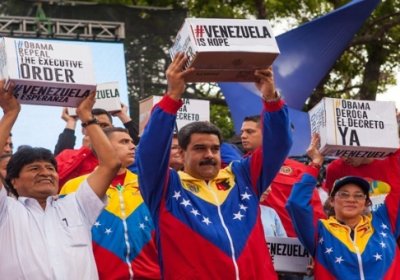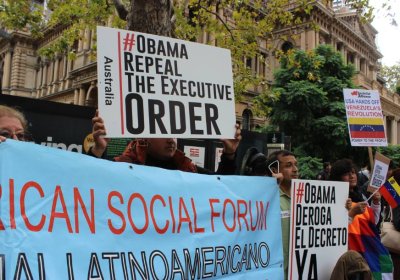 A lot is at stake in Turkey’s parliamentary elections to be held on June 7 — for the ruling Justice and Development Party (AKP) as well as the oppressed Kurdish population.
The AKP, led by President Recep Tayyip Erdogan, won 49% of the vote in the 2011 elections and holds 312 of the 550 seats in Turkey’s Grand National Assembly. A Gezici poll taken in January suggests the AKP’s support has slipped 9.7% to just under 40%.
A lot is at stake in Turkey’s parliamentary elections to be held on June 7 — for the ruling Justice and Development Party (AKP) as well as the oppressed Kurdish population.
The AKP, led by President Recep Tayyip Erdogan, won 49% of the vote in the 2011 elections and holds 312 of the 550 seats in Turkey’s Grand National Assembly. A Gezici poll taken in January suggests the AKP’s support has slipped 9.7% to just under 40%.
Democracy
 A lot is at stake in Turkey’s parliamentary elections to be held on June 7 — for the ruling Justice and Development Party (AKP) as well as the oppressed Kurdish population.
The AKP, led by President Recep Tayyip Erdogan, won 49% of the vote in the 2011 elections and holds 312 of the 550 seats in Turkey’s Grand National Assembly. A Gezici poll taken in January suggests the AKP’s support has slipped 9.7% to just under 40%.
A lot is at stake in Turkey’s parliamentary elections to be held on June 7 — for the ruling Justice and Development Party (AKP) as well as the oppressed Kurdish population.
The AKP, led by President Recep Tayyip Erdogan, won 49% of the vote in the 2011 elections and holds 312 of the 550 seats in Turkey’s Grand National Assembly. A Gezici poll taken in January suggests the AKP’s support has slipped 9.7% to just under 40%.
There is a tense stand-off right now between Greece's government and the so-called troika — the European Commission, the European Central Bank (ECB), and the International Monetary Fund (IMF). ECB President Mario Draghi recently went so far as to deny that his institution was trying to blackmail Greece's left-wing anti-austerity government.
But blackmail is actually an understatement. It has become increasingly clear that the troika is trying to harm the Greek economy in order to raise pressure on the new Greek government to agree to its demands.
The Inconvenient Genocide: Who Remembers the Armenians?
Geoffrey Robertson QC, Vintage Books,
Sydney, 294 pages, 2014
On the eve of Nazi Germany’s 1939 invasion of Poland, Adolf Hitler urged his generals “to kill without mercy men, women and children of the Polish race or language”.
“Only in such a way will we win [what] we need,” Hitler said. “Who, after all, speaks today of the annihilation of the Armenians.”
The Nazi leader was referring to the genocide carried out by the Ottoman Turkish empire in 1915 against the Armenian people within its borders.
French politics further confirmed its rightward trajectory after the second round of departmental elections on March 29.
There are 101 departments and 4108 councillor positions across the country. Departments are in charge of local roads, school buildings and buses, welfare allowances and various other local issues. But the elections also represent a barometer of the political situation in the country.
The governing nominally centre-left Socialist Party (PS) suffered a humiliating defeat against a right-wing united front headed by the centre-right Union for a Popular Movement (UMP).
Hundreds of protesters took to the streets of Indiana state capital Indianapolis on April 4 to demand legal protection against workplace discrimination based on sexual orientation.
“No hate in our state,” read placards carried by protesters. They marched through the city just days after state legislators revised a controversial religious freedom law that failed to provide protection against discrimination.
The United States is providing crucial support to regional ally Saudi Arabia ― a big buyer of US arms ― as it launches a new war in the Middle East by attacking neighbouring Yemen.
A Saudi-led coalition of Western-aligned, mainly Sunni Islamist, Arab government's launched air, naval and ground military offensive against Yemen on March 25.
Saudi Arabian forces are being supported by military planes from the United Arab Emirates, Qatar, Bahrain, Kuwait, Jordan, Morocco, Sudan and Egypt, which is also supplying naval forces.
White City, Black City: Architecture & War in Tel Aviv & Jaffa
By Sharon Rotbard
Pluto Press, £14.99
In July 2003, Unesco put the “White City” of Tel Aviv on its list of World Heritage Sites. It took almost 20 years of incessant campaigning by the Israeli state to secure this recommendation that, de facto, legitimised far-reaching aspects of Zionist ideology.
But was there any merit to the Tel Aviv case in the first place? In fact, the building of Tel Aviv began adjacently to Jaffa — one of the oldest continuously inhabited cities of the world — only from about 1909.
Greek Prime Minister Alexis Tsipras said on April 2 that his government would strengthen the country's public health system by the hiring of 4500 extra staff and abolishing a compulsory €5 fee for treatment at public hospitals, TeleSUR English said that day.
The measure forms part of a broad package of reforms aimed at overhauling the country’s broken medical system by providing universal access to quality healthcare.
Terrorists from Somali Islamist group al-Shabaab massacred 142 students at Garissa University in northern Kenya on April 2. In response, the Kenyan airforce bombed what they said were al-Shabaab camps in Somalia on April 5 and 6.
Kenyan forces have been occupying Somalia since October 2011, under African Union (AU) auspices, along with troops from Uganda and Burundi.
On April 7, students protested in Garissa and the Kenyan capital, Nairobi, against the seven-hour delay in security forces reaching the university during the attack.
The Greek parliament has debated a proposal to establish a committee to investigate loan agreements between previous governments and international lenders, TeleSUR English reported on March 31.
The motion, tabled by ruling anti-austerity party SYRIZA, would examine credit accords dating back to 2009 with organisations including the International Monetary Fund, the European Union and the European Central Bank.
Venezuelan President Nicolas Maduro, along with his Bolivian counterpart Evo Morales, received a petition with 10 million signatures against U.S. President Barack Obama's executive order labelling the country as a “security treat” on April 9.
After the decree was issued, Maduro launched a campaign seeking 10 million signatures from Venezuelans demanding the decree be repealed, saying he would present them to the U.S. President Barack Obama at the April 10-11 Summit of the Americas in Panama.
US President Barack Obama admitted on April 9 that Venezuela “does not pose a threat” to the United States.
“We do not believe that Venezuela poses a threat to the United States, nor does the United States threaten the Venezuelan government,” Obama said during an interview with EFE.
Last month, Obama signed an executive order declaring Venezuela an “unusual and extraordinary threat to the national security and foreign policy of the United States.”
- Previous page
- Page 311
- Next page








